Extended Reality (XR): The next big thing
By The Star – Jun 28, 2021 @ 9:50am
A version of this article was first published on the The Star
THE rapid rise in the use of emerging technologies to manage and adapt to the current pandemic for operational efficiency, customer interaction and business sustainability has been simply phenomenal.
An ecosystem of technologies that facilitates interaction and allows for veritable engagement with customers and clients in a seemingly real or physical way is Virtual Reality (VR) and Augmented Reality (AR).
When combined as a hybrid mix of physical reality and digital content, we get Mixed Reality (MR) whereby the user can interact with and among the real world together with digital objects.
The next quantum leap in this ecosystem is Extended Reality (XR) which revolutionises spatial computing.
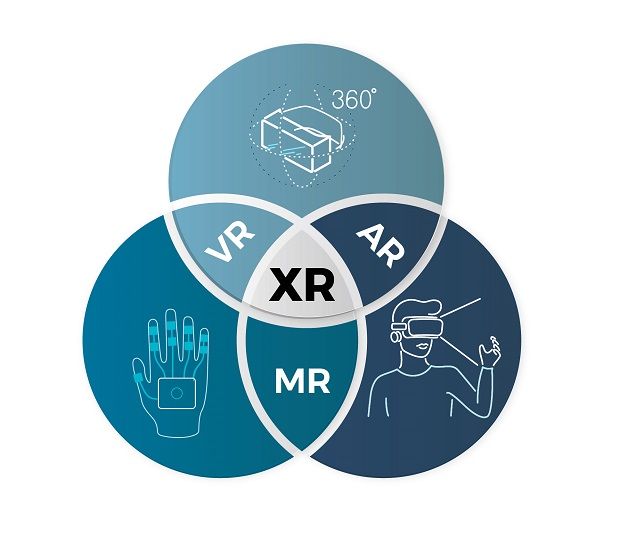
Most importantly, interactivity, presence and immersion are three linked touchstones that allow us to distinguish between the three types of simulated application technologies.
Interactivity can be understood as “the extent to which users can participate in modifying the form and content of a mediated environment in real time.”
Presence is most commonly understood as the feeling of being there in a place or environment when physically located elsewhere.
Immersion is commonly explained in terms of both presence and interactivity.
Diversity of extended reality technology
So how is Extended Reality (XR) helping businesses, universities, consumers and people in general?
The answer to this is the ubiquitous use of immersive technology in virtual shopping, learning and education, entertainment, healthcare, tourism and many other industries.
These technologies have been deployed in diverse applications such as service delivery in fitness and telehealth; clinical assessment and surgical procedures; maintenance and machinery training; medical education; audio-visual entertainment and gaming; trying out fashion designs before buying; virtual help assistant; virtual museum visits; and virtual country tours.
Many of these activities are performed in the comfort of one’s home or workplace without the need for physical travel.
Goldman Sachs Inc estimates that the uptake for VR/AR hardware and software is estimated at US$45bil and US$35bil respectively in 2025.
Aside from the popularity and increased use of VR/AR/MR applications in the business and public sectors, consumers have also become a major part of this ecosystem.
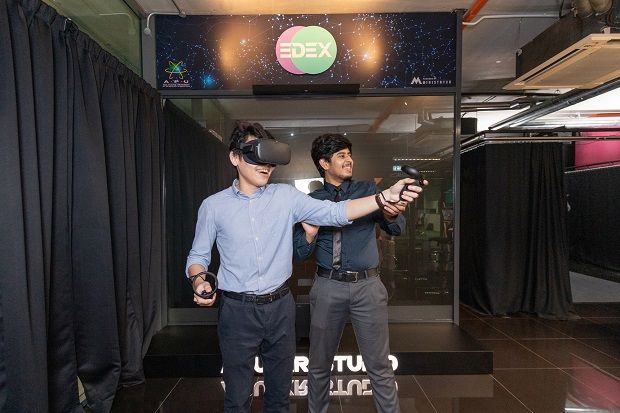
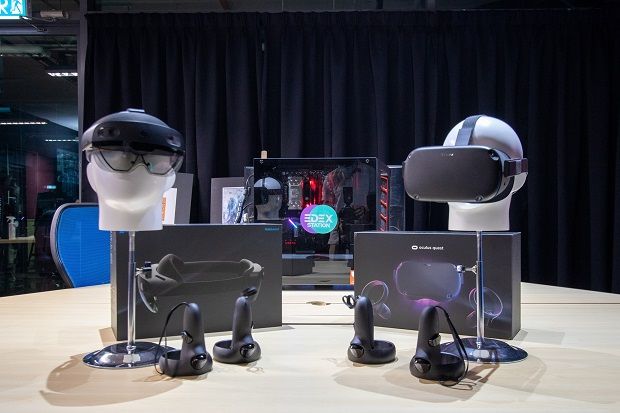
“The XR Studio comprises four stations with engagements designed to generate interest across multiple disciplines and it is the only lab where students can experience and build on with professional tools to create immersive AR, VR and MR applications,” explained Ts Dr Siti Azreena, the Creative Interactive Technology (CIT) lecturer at APU’s School of Computing.
“The studio is for lessons related to XR development. However, it is not limited to class and lab lessons; the studio is also accessible for research purposes. Currently, we have several research grants associated with XR technology and in prototype development,” she said.
Assignments carried out at XR Studio further provide inquisitive minds with the advantage of distinctive exposure, practical application and knowledge.
With the integration of multiple technologies, the skills of students are honed – technically and creatively – to ultimately generate high-value creative technologists for the new digital economy.
In addition to this groundbreaking XR studio, APU had earlier launched and now hosts the VR/AR International Association (VRARA) Malaysian chapter.
This initiative provides an invaluable opportunity for students and staff to interact and share knowledge, interests and development with a global network of VR/AR peers and professionals.
Bachelor Degree with a specialism in VR/AR
The journey to acquire knowledge, skills and a professional qualification in VR/AR begins with the BSc (Hons) in Multimedia Technology with a specialism in VR/AR.
Specialised modules in this programme include Introduction to VR/AR, Digital Image Production, Audio Visual Technology in Year 1, VR/AR Design Principles, Advanced VR Technology in Year 2, and VR/AR Design Project, Investigations in Multimedia Technology in Year 3, which is the final year.
The student projects and assignments carried out at the XR Studio are focused on developing skills in spatial computing related to XR technical expertise, integration of other courses and XR creative expertise.
Through unprecedented collaboration between APU and its industry partners, students are inspired to design compelling stories via the creation of interactive spatial computing systems that are supportive of the increasing industry demands.
To enhance their practical skills alongside their academic knowledge, students also undertake a 16-week internship in Year 2 of their degree studies.
Several options are available for internship with APU’s industrial partner Ministry XR, and other VR/AR companies, through an internship at APU’s XR Studio with guidance from the respective lecturers and industry XR Engineers.
With XR technology in demand especially in the Asia-Pacific region, VR/AR graduates can look forward to exciting careers in many industries.
APU’s career centre helps to facilitate the transition from a professional graduate to a working professional through career fairs, links to career preparation services, job opportunities and links to employers.
APU’s graduates are highly sought after not only within Malaysia but also overseas. According to the latest Annual Graduate Tracer Study by the Higher Education Ministry, 100% of APU graduates were employed upon graduation.

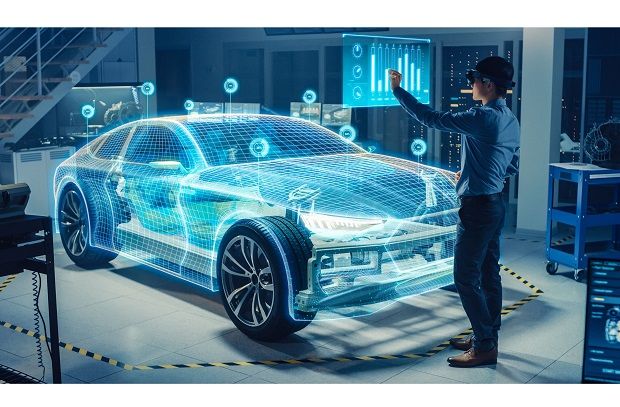
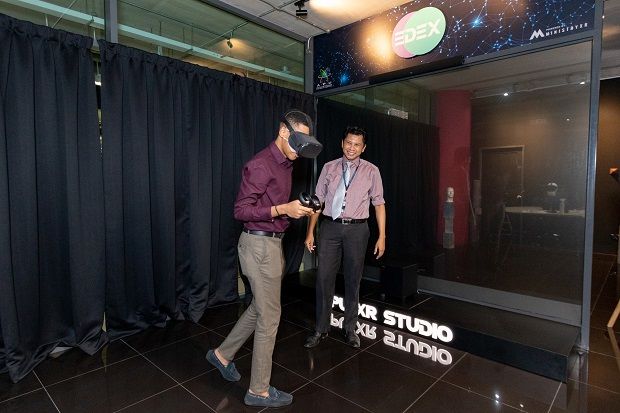
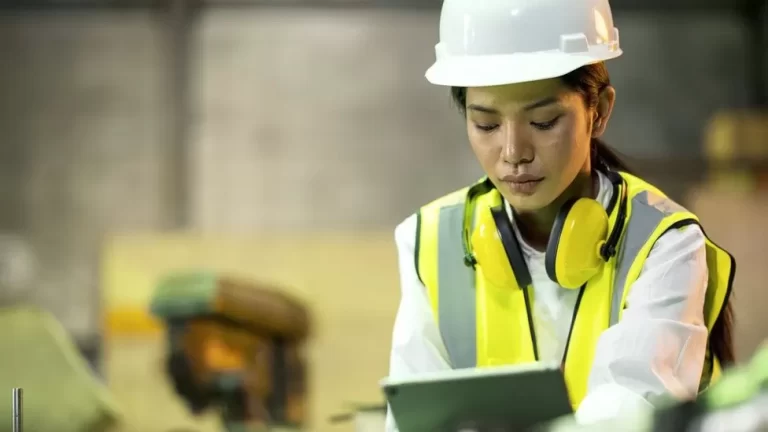



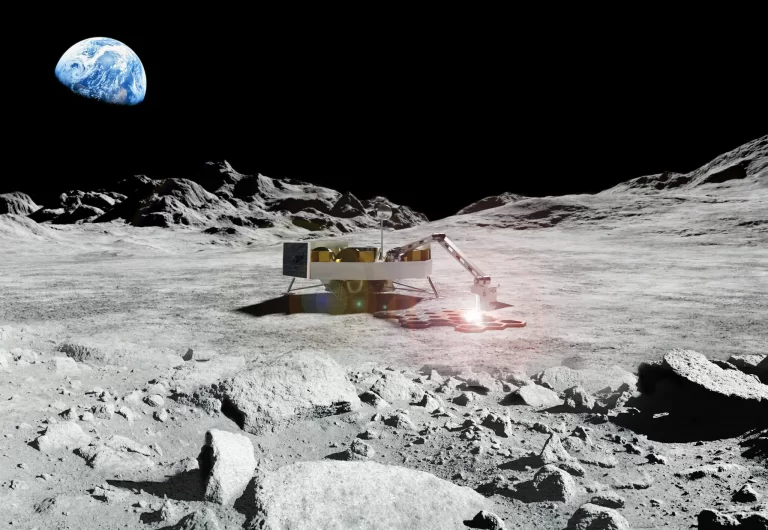
![[Press Release] Ground-breaking Ceremony for DHL New HUB, Bayan Lepas, Pulau Pinang](https://www.penangstem.com/wp-content/uploads/2022/07/DHL-21072022-980x735.jpg-768x576.webp)